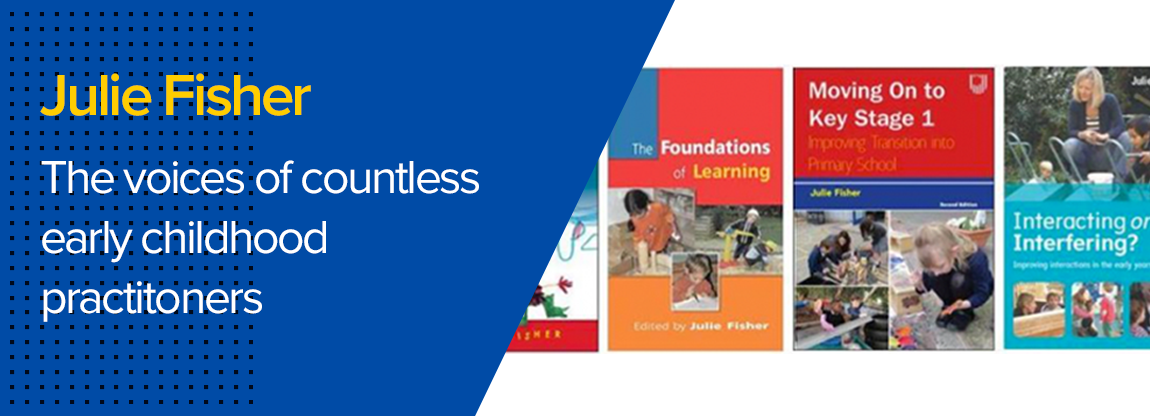Julie Fisher: I Could Not Have Written in the Way That I Have Without the Voices of Countless Early Years Practitioners Telling Me What Matters to Them
Early Years Advisor, Visiting Professor and esteemed author Julie Fisher discusses the drivers behind her books with Open University Press and how research can inform practice.
Uniting research, theory and practice
My writing has always been fuelled by advocacy. For the past 25 years I have written in response to the concerns of early years practitioners over the intensification of government regulation surrounding early childhood education in England.
With the exception of my second book, The Foundations of Learning (2002), my writing has drawn on action research projects undertaken alongside a range of committed practitioners with whom I was working at the time. In the iterative process of drawing together theory and practice I have tried to find ways through the seemingly contradictory discourses faced daily by those working with our youngest children. This fusion of research, theory and practice is perhaps the hallmark of my writing.
Starting from the Child
I was introduced to Open University Press by the wonderful Janet Moyles who took me under her wing as a fledgling author and introduced me to the company. My first book Starting from the Child? was published in 1996 and it still amazes me that, thanks to some skilful support and timely intervention from Open University Press, this book has been published in four editions (1996, 2002, 2008, 2013).
Each time Starting from the Child was published afresh (the question mark was dropped from the second edition onwards) the challenge lay in addressing the context in which early years practitioners were working.
Successive government policies, guidance and initiatives were constantly challenging what early childhood professionals believed about how young children learn best and their role in that process. It wouldn’t be unreasonable to say that between the publication of the first edition of Starting from the Child and the fourth, government imposition shifted key elements of the role of early childhood educators from ‘inspiring’ to ‘insisting’ – and that this had a significant impact on practice.
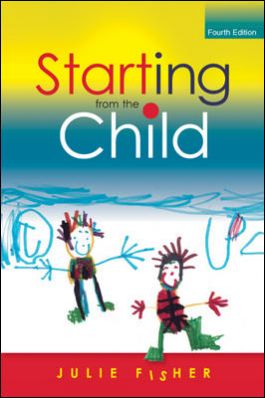

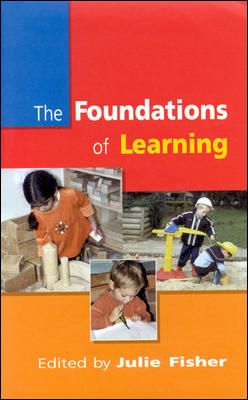

The Foundations of Learning
Around the turn of the millennium, my work with local architects responsible for the new build of nurseries and schools in the local authority for which I worked, led by chance to conversations about the similarities in the foundations of buildings and the foundations of education.
The analogies between the two were so powerful that, as a result, I wrote these up as article which in turn became an edited book entitled The Foundations of Learning - and it remains one of my proudest achievements.
The characteristics of ‘foundations’ that the architect and I found in common still form the basis of keynote conference speeches around the world where messages about foundations (experiences) that need to go deep and wide before any buildings (outcomes) are seen, resonate with practitioners around the world.
Moving On to Key Stage 1
Moving On to Key Stage 1 (2010) was written in response to national calls for practice in Key Stage 1 to ‘build on’ the best of practice in the EYFS. A three-year research project advocated introducing a play-based pedagogy alongside more traditional formal approaches, to the benefit of both children and their teachers.
However, changes of government shifted the direction of travel and, rather than ‘building on’ what had gone before, teachers were suddenly required to ’get ready for’ what was to come next. This shift in emphasis has brought about the second edition of Moving On to Key Stage 1 this year.
How can teachers meet the developmental needs of Key Stage 1 children whilst faced with a government agenda that privileges the outcomes of adults (goals, targets and tests) over outcomes that are meaningful for children (play, enquiry and exploration)? It is clear from social media as well as from face to face meetings at training and conferences that a new edition is desperately needed by teachers who feel their beliefs and values are being undermined by the data-driven demands of their schools.
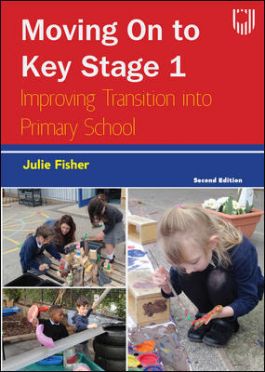

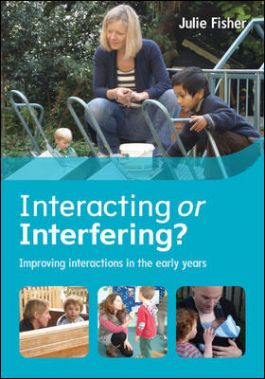

Interacting or Interfering?
As pedagogy in the early years became increasingly scrutinised by local authorities, Ofsted and national research projects, one criteria of outstanding practice upon which everyone seemed to agree was the quality of interactions between early years practitioners and the children with whom they worked.
Nevertheless, there was not always agreement about what ‘effectiveness’ looked like. Whilst the principles of many practitioners were rooted in ‘following’ children’s learning and facilitating, supporting, guiding and encouraging their development, an increasingly persistent mantra was heard encouraging practitioners to ‘lead’ the learning by teaching, demonstrating, steering and focusing on aspects of the curriculum prioritised by adults.
This shift in pedagogical emphasis led to the third of my research projects examining what is meant by an ‘effective’ interaction in the context of the early years. The outcome from four years’ research alongside practitioners working with children from six months to six years was Interacting or Interfering? (2016).
This book challenged early years practitioners to listen as much as they talk; to be more concerned with the questions children ask than the questions adults ask and to maintain the flow of children’s thinking and learning rather than hijacking it for their own, adult purposes.
The power of collaboration
All of my books have, in some way or other, been collaborative. These collaborations have focused my research, sharpened my thinking and enriched my knowledge.
They have also ensured that I write and, to a large extent, shaped how I write. I could not – and would not – have written in the way that I have without the voices of countless early years practitioners telling me what matters to them, where their challenges and barriers lie and what they needed my books to communicate.
In our current educational climate, practitioners often seek ‘evidence’ to back-up their chosen pedagogy. As training courses become shorter and less academically based, and as child development is omitted from many training courses altogether, I believe that those of us who write have a responsibility to strengthen the advocacy of those who are working daily with children and who do not always have the luxury of time to research and write for themselves.
Every time one of my books is published it stands on the shoulders of those who have been prepared to commit their time and communicate their passion for working in the early years to inform what I say and the messages I give.
But alongside the inspiration of these early years practitioners I have found the support of a publishing house to be crucial. I was fortunate to work in the early days alongside Shona Mullen and, for 20 years alongside the wonderfully collegiate Fiona Richman. The expectations of those with expert publishing knowledge enabled me to refine my thinking, to be clear about my audience and to clarify my messages.
The process of writing is tremendous in honing both thinking and how to communicate that thinking. I am grateful to all those at Open University Press who have shared this writing journey and offered their expert support.
Sign up to our newsletter

